Research studies
IN THE FIELD OF EDUCATION
Research studies for European Commission institutions
We have participated in over 18 research projects in the field of education and lifelong learning.
Below you can get an insight into some of the research studies in which we participated by conducting research in the Republic of Croatia, Slovenia and the Republic of Serbia. You can request a detailed list of projects by e-mail.
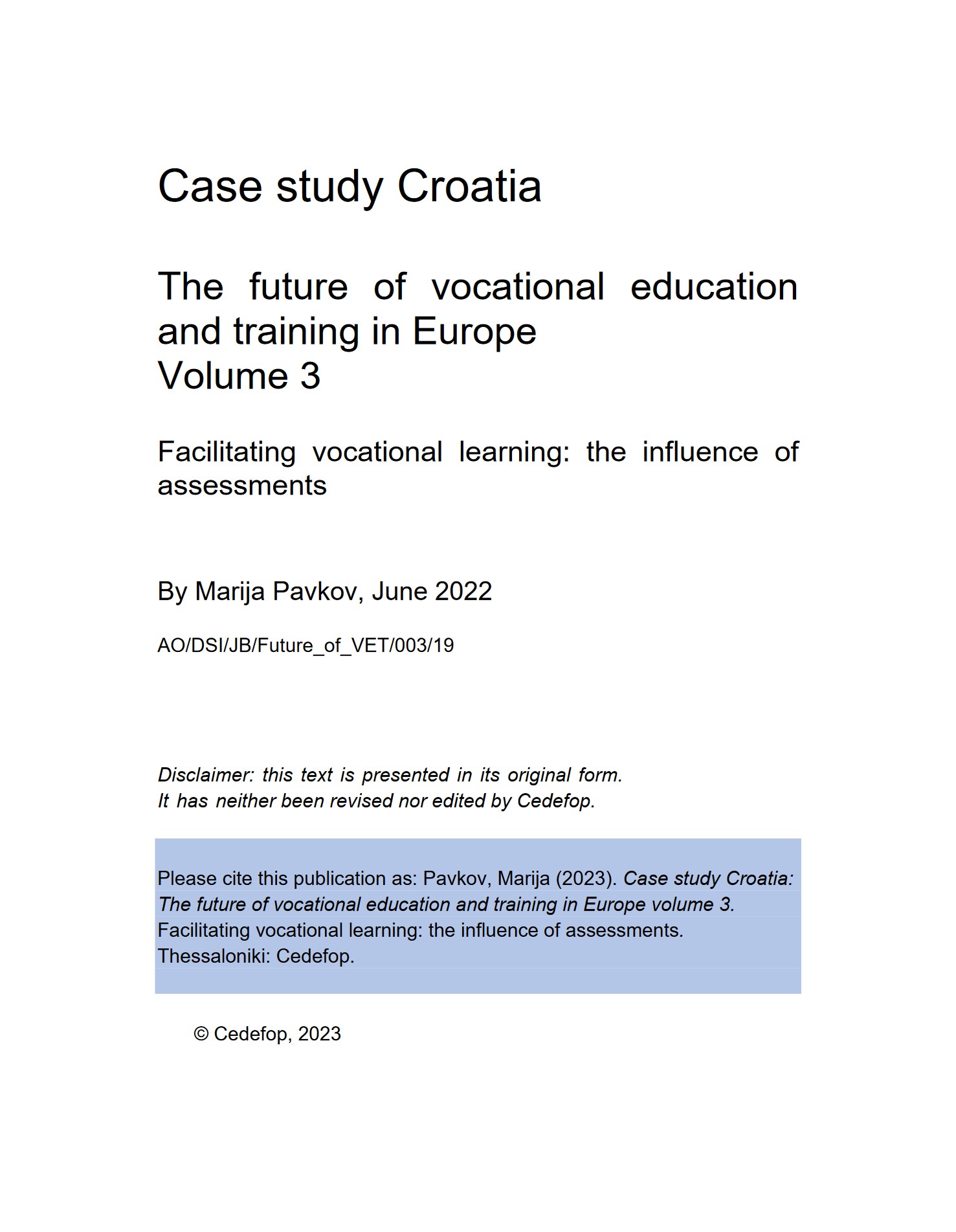
1. Case study Croatia: The future of vocational education and training in Europe volume 3. Facilitating vocational learning: the influence of assessments (2023), Thessaloniki: Cedefop.
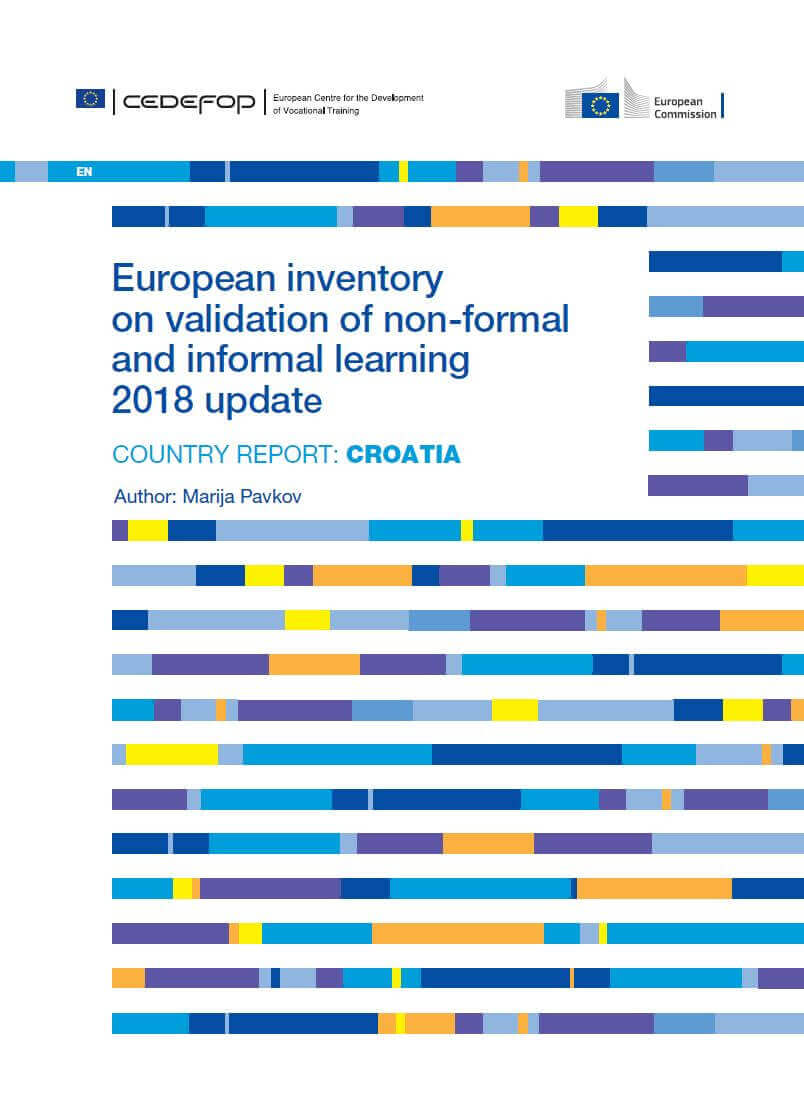
2. European Commission; Cedefop; ICF International (2019). European inventory on validation of non-formal and informal learning 2018: country report Croatia
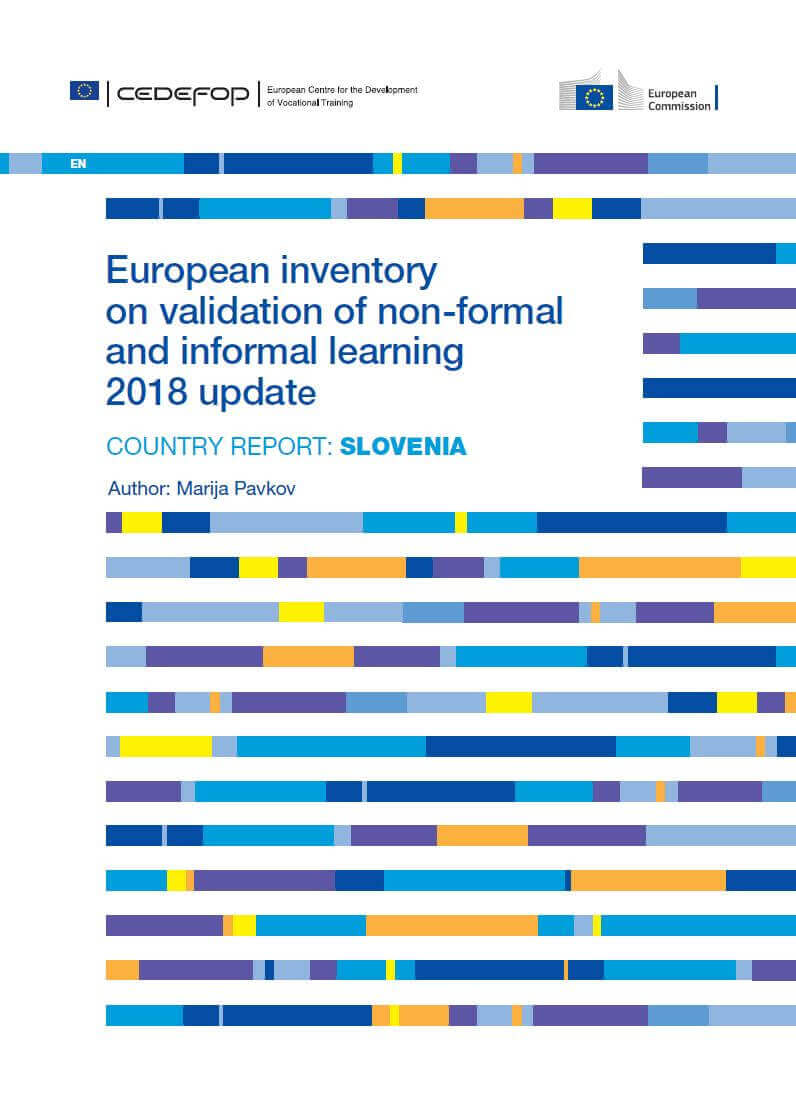
3. European Commission; Cedefop; ICF International (2019). European inventory on validation of non-formal and informal learning 2018: country report Slovenia
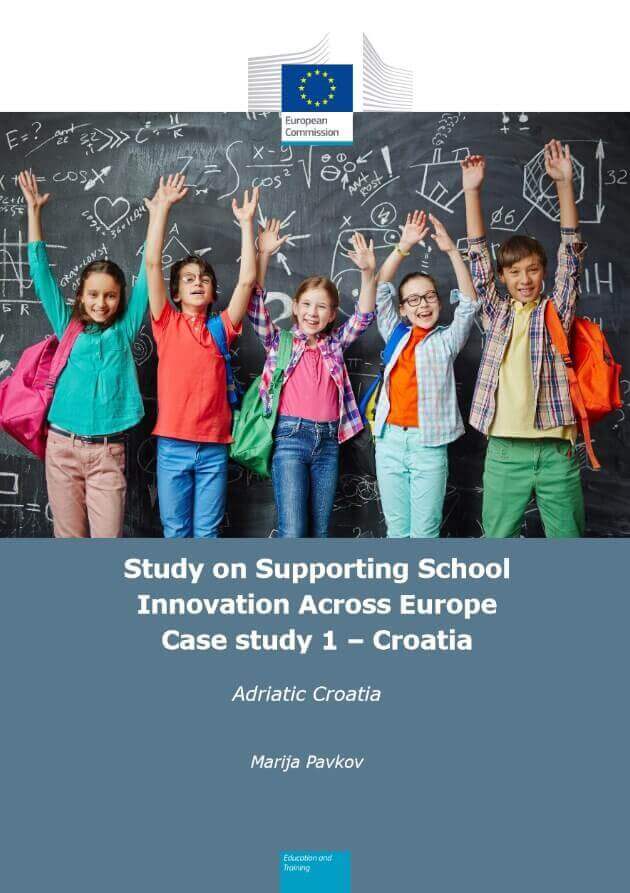
4. Study on supporting school innovation across Europe, Final Report, 2018 & country report for Croatia
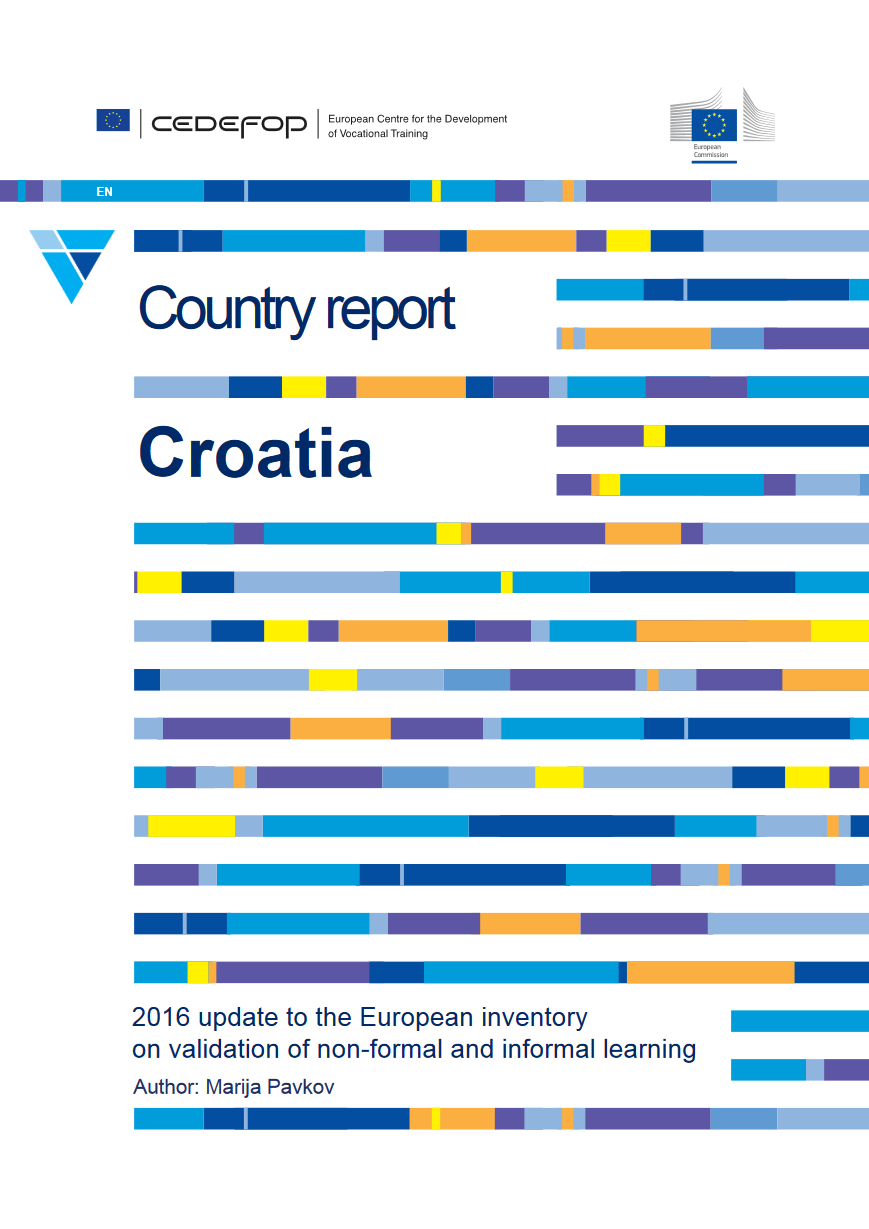
5. European Commission; Cedefop; ICF International (2016). European inventory on validation of non-formal and informal learning 2016: country report Croatia.
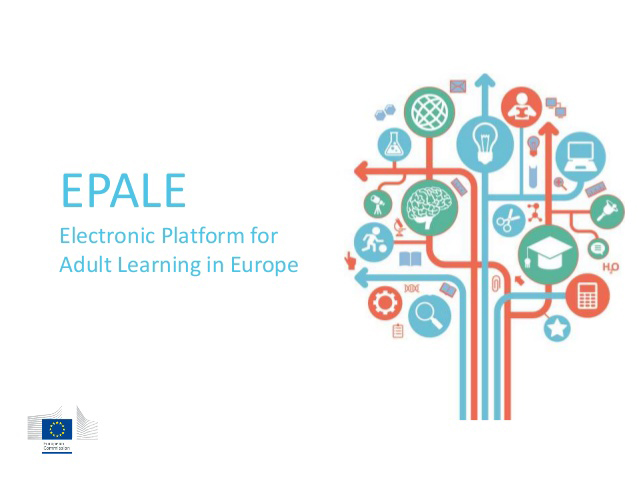
6. Review of the education system in the Republic of Croatia published on EPALE (ePlatform for Adult Learning in Europe), 2016

7. Do we know in the Republic of Croatia how many adults really participate in adult education, objavljeno na EPALE (Electronic Platform for Adult Learning in Europe), 2016
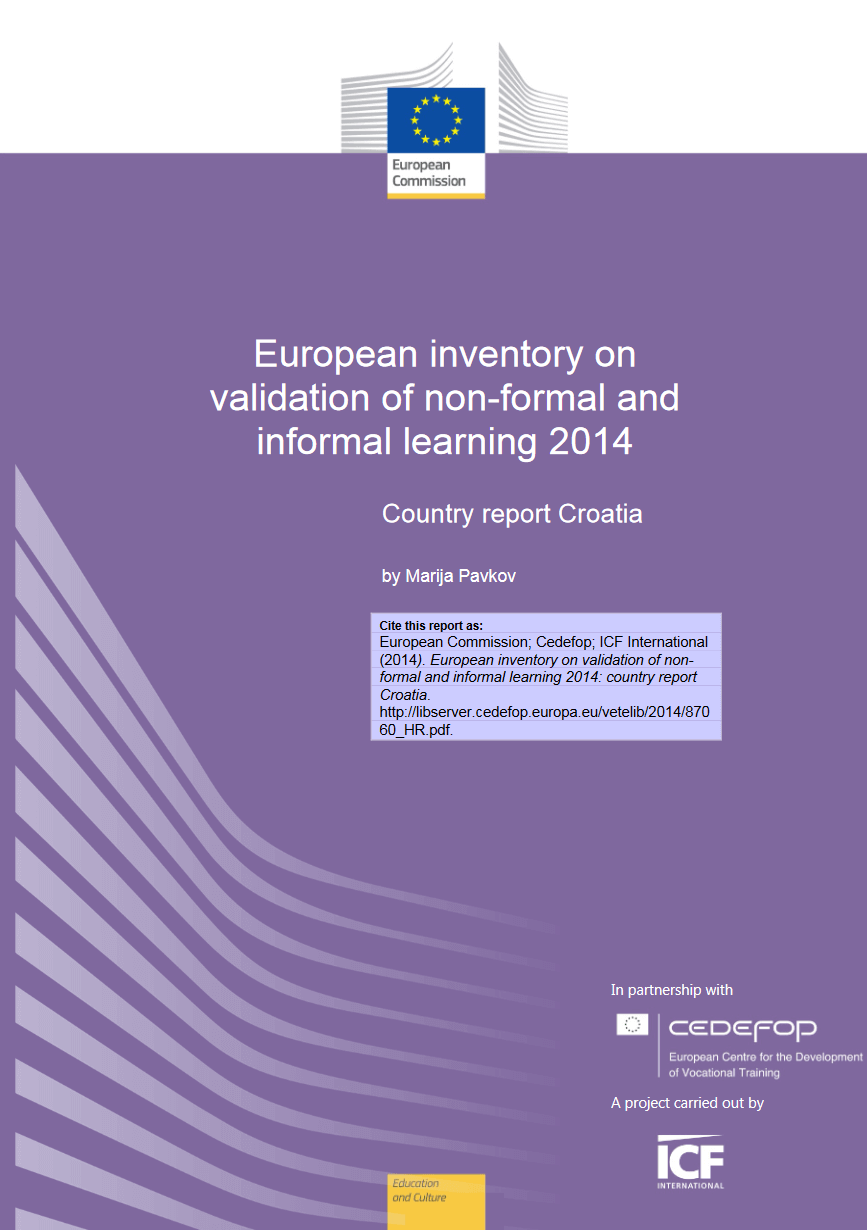
8. European Commission; Cedefop; ICF International (2016). European inventory on validation of non-formal and informal learning 2016: country report Croatia.
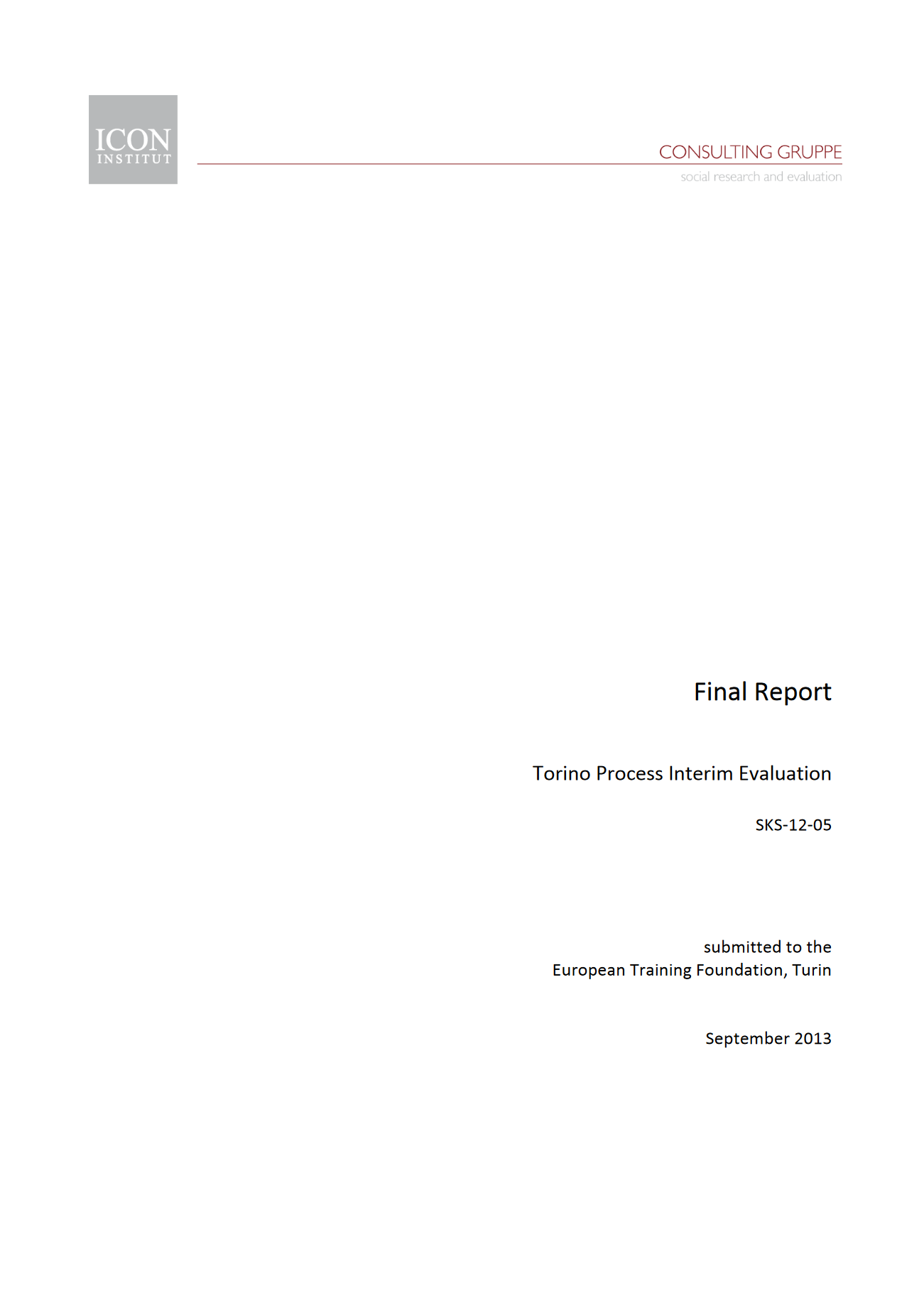
9. Mid-term Evaluation Report on Torino Process, prepared for the ETF (European Training Foundation, Turin, Italy) , 2013
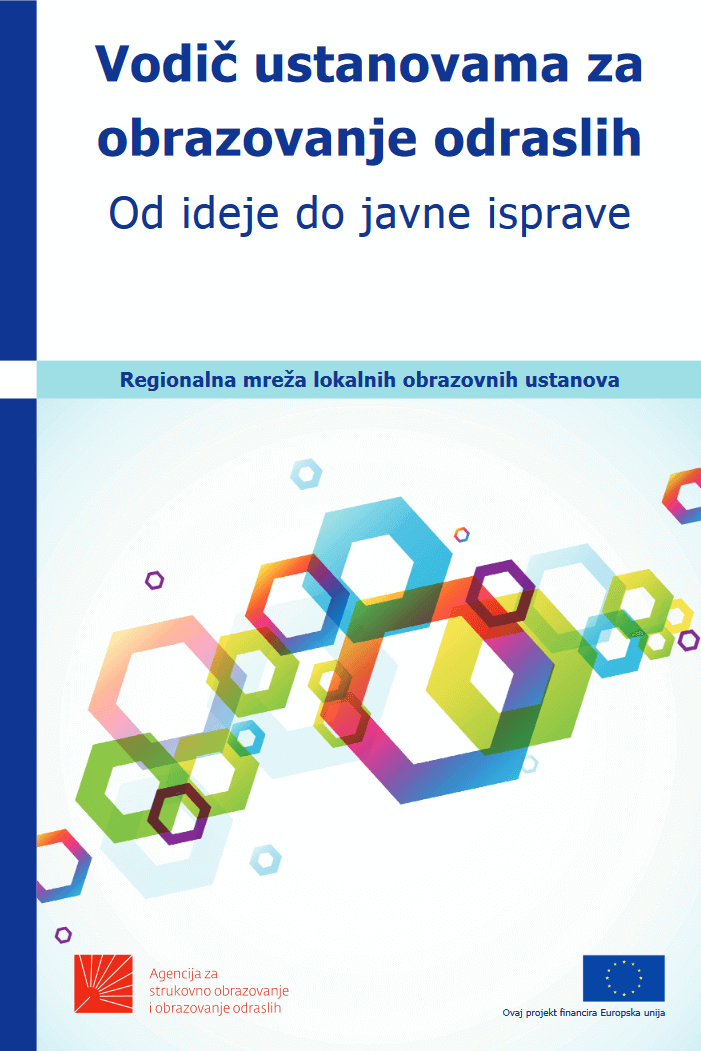
10. Vodič ustanovama za obrazovanje odraslih – od ideje do javne isprave, Agencija za strukovno obrazovanje i obrazovanje odraslih, Zagreb, 2012.
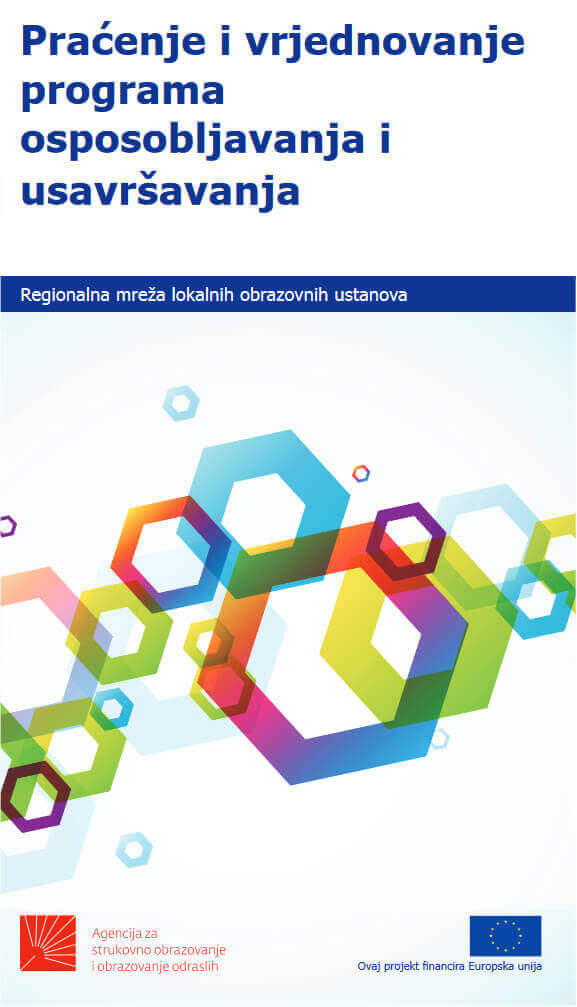
11. Praćenje i vrednovanje programa usavršavanja i osposobljavanja, Agencija za strukovno obrazovanje i obrazovanje odraslih, Zagreb, 2012.
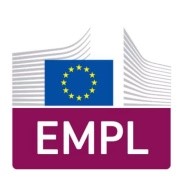 We have participated as national experts in Peer Learning events organized by the European Commission, the Directorate for Employment, Social Affairs and Inclusion.
We have participated as national experts in Peer Learning events organized by the European Commission, the Directorate for Employment, Social Affairs and Inclusion.
Peer Learning events represent a form of learning between participating countries in the context of national policies and the effectiveness of their implementation. The purpose is to transfer knowledge and experience and apply newly acquired insights into the national environment. The aim of peer learning in the field of employment, social affairs and inclusion is to facilitate learning, debate and capacity building in relation to policy development and reform at European and national level. Topics for discussion are employment, social issues (social inclusion, health and long-term care, pensions), free movement of labour, social security coordination, working conditions, social dialogue, labour mobility, skills, education, vocational education and training, etc.

1. Individual Learning Accounts (ILA) Mutual learning programme, 2023
(Topics discussed: Kickstarting EU support to ILA design and implementation; Funding models for ILA design and implementation; Focus on the personal budget and on how to make it available to individuals)
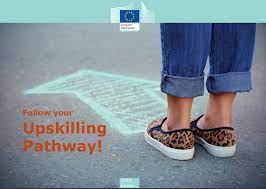
2. Upskilling Pathways Lab – online peer-learning events, 2021
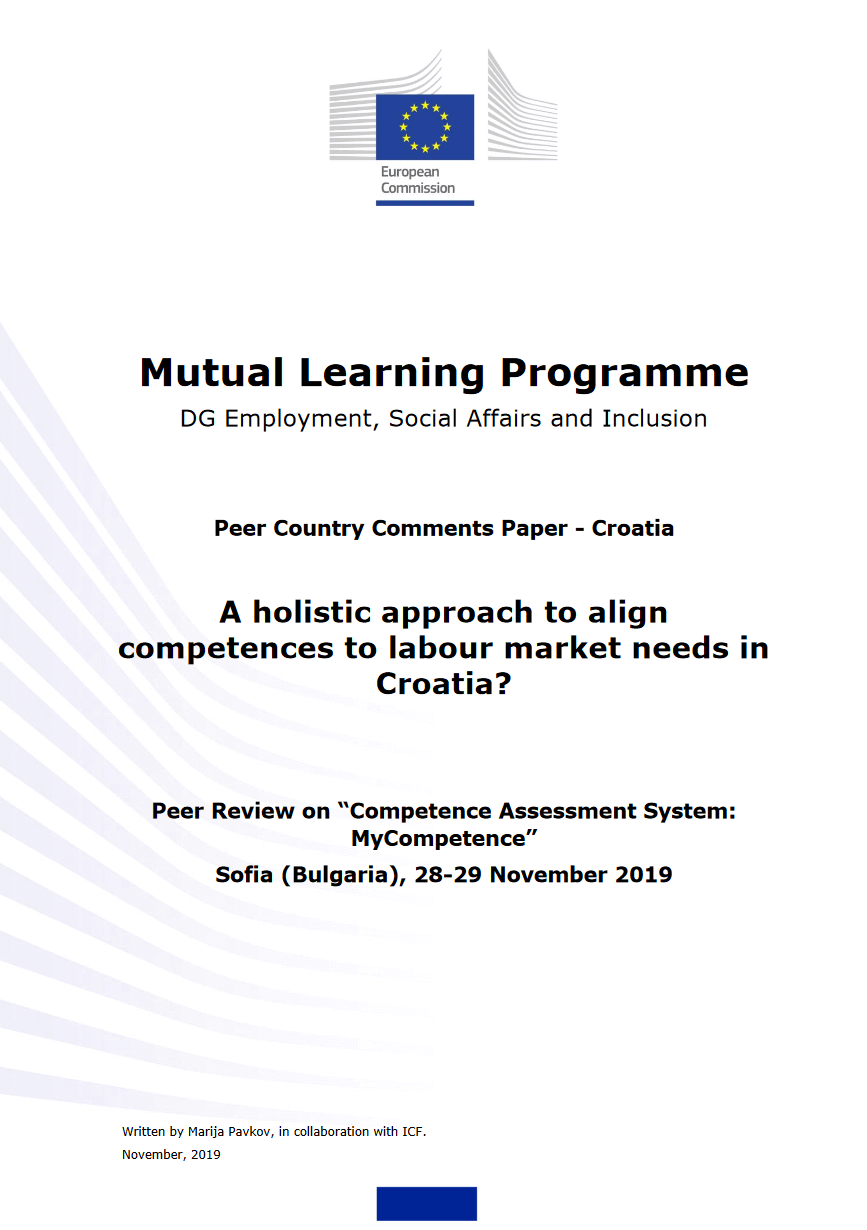
3. A holistic approach to align competences to labour market needs in Croatia? Peer Country Comments Paper, Peer Review on „Competence Assessment System: MyCompetence“ (28-29 November 2019, Sofia, Bulgaria)
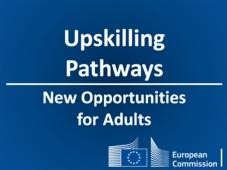
4. Upskilling Pathways – mutual learning workshops, 6-8 October 2017 Bucharest; 11-13 April 2018 Rome.
The Recommendation “Upskilling Pathways: new opportunities for adults" (European Commission, 2016) aims to help adults acquire a minimum level of literacy, numeracy and digital skills and/or acquire a broader set of skills by progressing towards a higher qualification (depending on national contexts) through 'an upskilling pathway'. They may be in employment, unemployed or economically inactive, with a need to strengthen basic skills.
The workshops brought together seven countries to explore the policy actions and practical levers that can support the implementation of the Upskilling Pathways Recommendation. Examples of good practice from peer countries who had already made progress were presented. Focus was put on discussing national priorities and reflecting on national plans in relation to:
- Mapping any existing elements related to the three steps of Upskilling Pathways and how they can be (better) connected, as well as identifying gaps in provision
- Identification, outreach and guidance of priority groups
- Mobilisation of stakeholders
- Design support measures for individuals and employers
- Utilising ESF and Erasmus+ funding to support implementation
- Developing a plan and setting a timetable for implementing actions
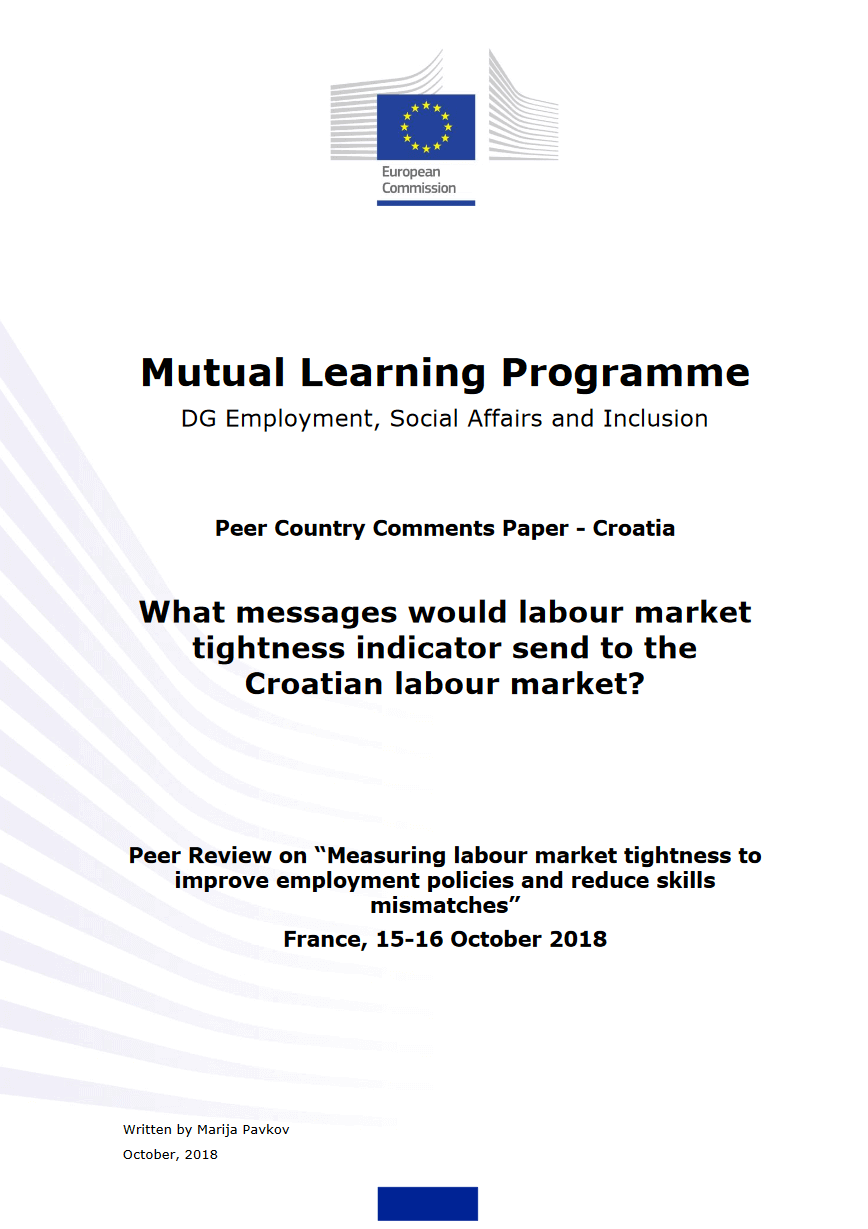
5. What messages would labour market tightness indicator send to the Croatian labour market? Peer Country Comments Paper, Peer Review on “Measuring labour market tightness to improve employment policies and reduce skills mismatches” (15-16 October 2018, Paris, France).
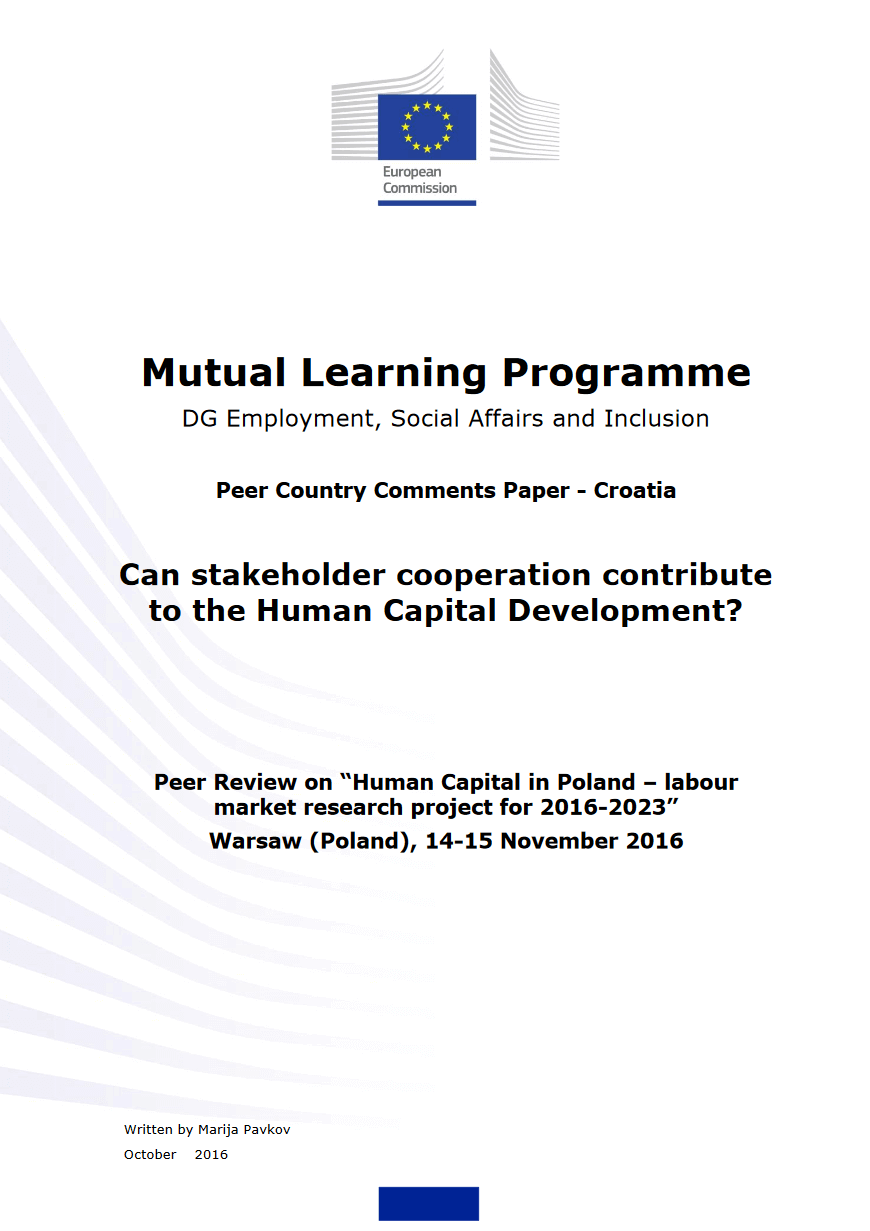
6. Can stakeholder cooperation contribute to the Human Capital Development?, Peer Country Comments Paper, Peer Review on “Human Capital in Poland – labour market research project for 2016-2023”, 14-15 November 2016, Warsaw, Poland.
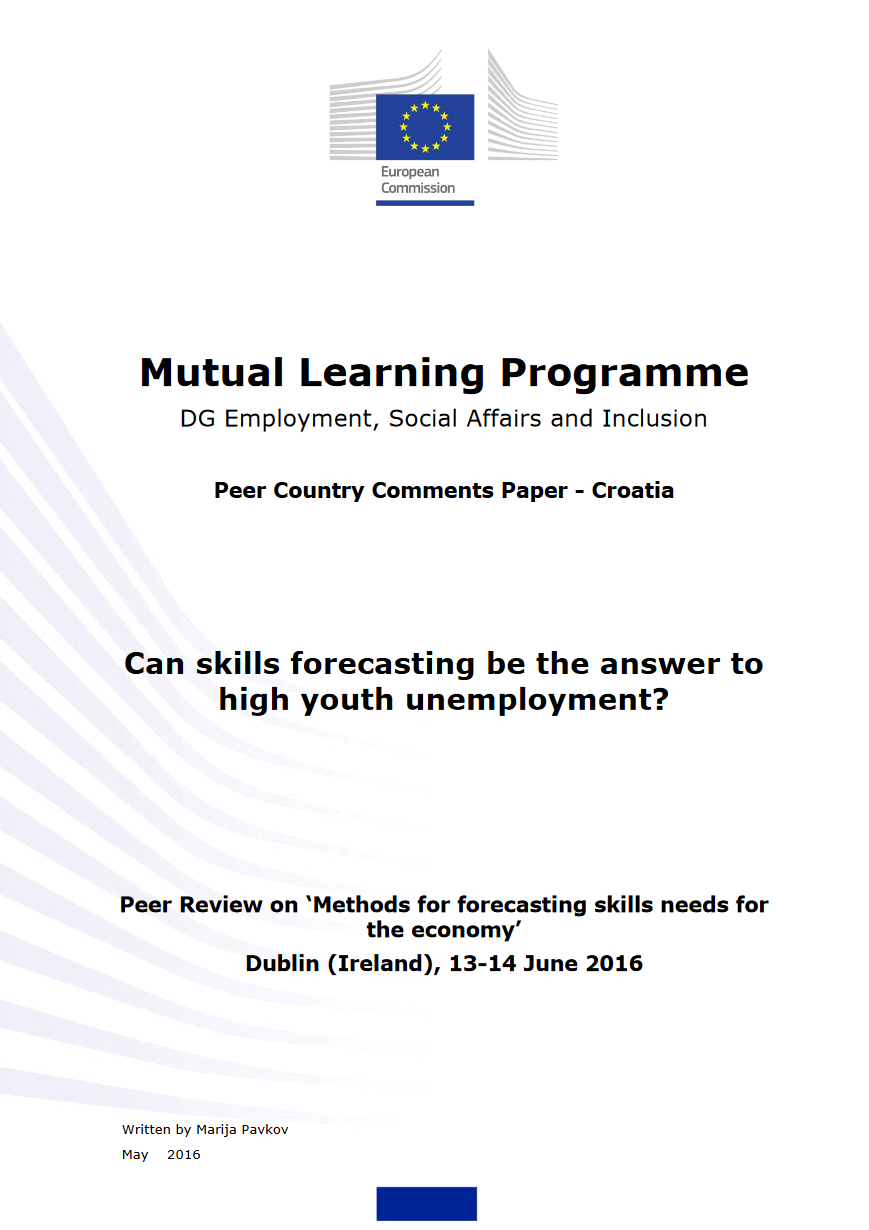
7. Can skills forecasting be the answer to high youth unemployment?, Peer Country Comments Paper, Peer Review on 'Methods for forecasting skills needs for the economy' (13-14. June 2016, Dublin, Ireland)
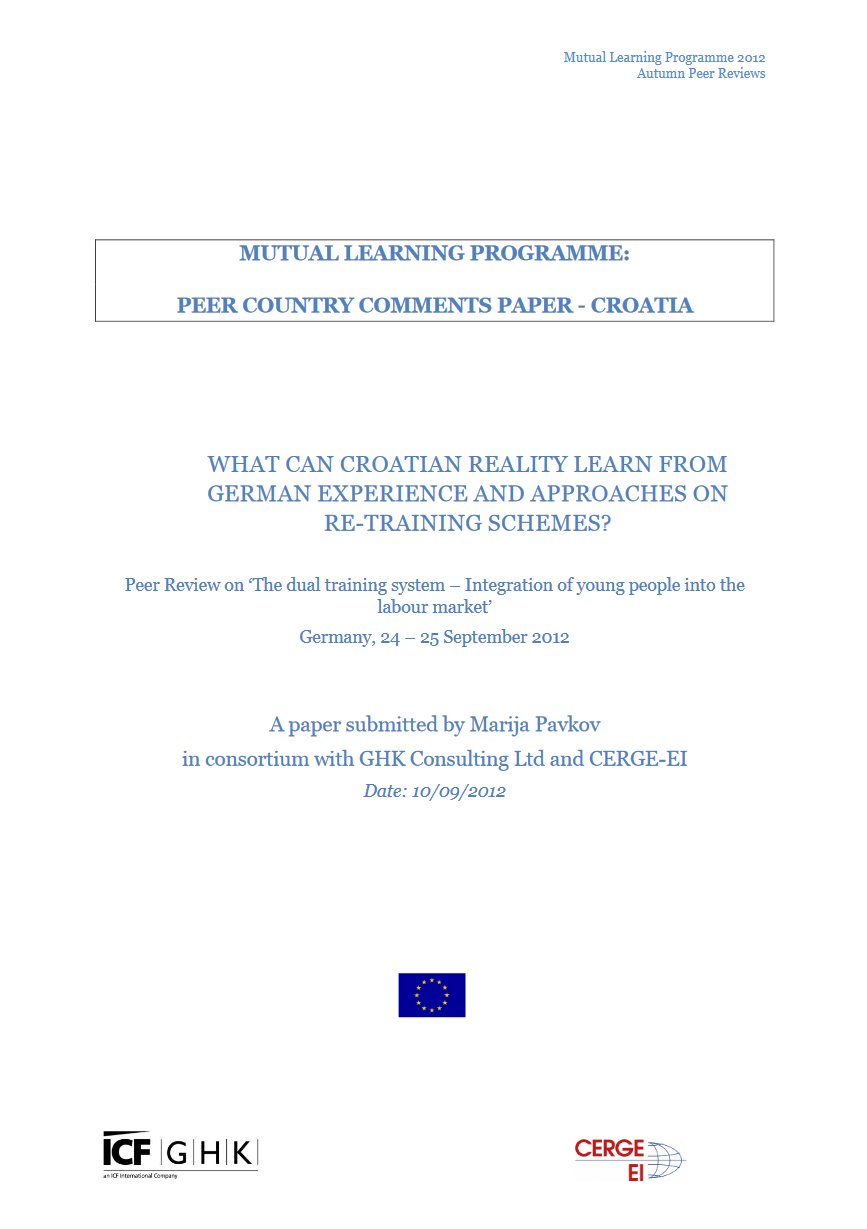
8. What can Croatian reality learn from German experience and approaches on re-training schemes?, Peer Country Comments Paper, Peer Review on „The dual training systems – Integration of young people into the labour market“, 24-25 September 2012, Berlin, Germany
DATABASES IN THE FIELD OF EDUCATION AND TRAINING
With our expertise and the implementation of national research, we have contributed with national data to the following CEDEFOP databases (European Center for the Development of Vocational Training):
 Skills forecast
Skills forecast
(Marija Pavkov je alternativni član glavnog nacionalnog eksperta na projektu od 2013.godine).
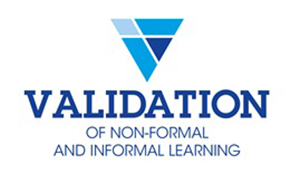 Validation of non-formal and informal learning
Validation of non-formal and informal learning


 Skills Panorama
Skills Panorama Financing Apprenticeships
Financing Apprenticeships Financing adult learning
Financing adult learning